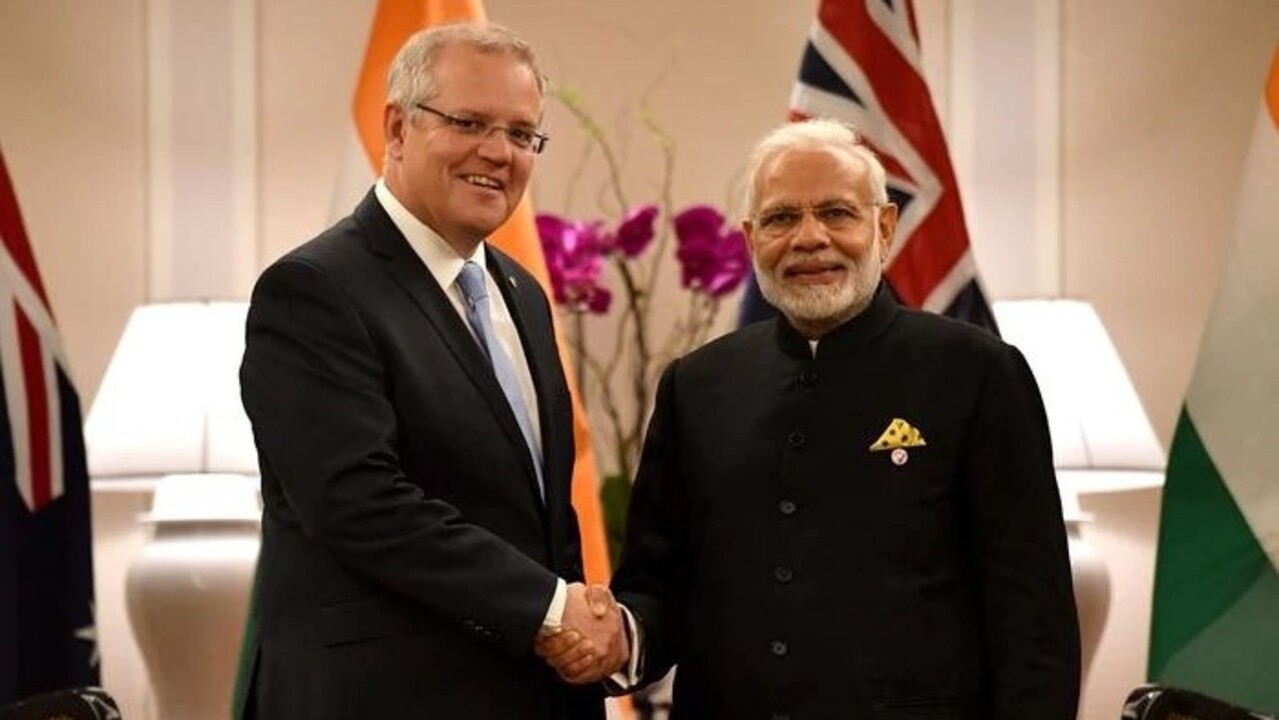Tasmania exports: List of sectors to benefit from India trade deal
Prime Minister Scott Morrison will use a whirlwind tour of northern Tasmania today to spruik the benefits of a new India trade deal, with island state growers and farmers set to cash in.

Surrounded by $20m worth of bales of Tasmanian wool ready for export, Prime Minister Scott Morrison spruiked the federal government’s economic record in advance of this afternoon’s signing of the Australia-India Economic Cooperation and Trade Agreement.
Mr Morrison has several engagements in the key northern Tasmanian swing seats of Lyons and Bass today, where he will outline the benefits for exporters from the island state.
Speaking at Evandale’s Nutrien Ag Solutions wool warehouse – tariffs on which will be eliminated under the FTA, with Australia providing 57 per cent of India’s wool imports – on Saturday morning, Mr Morrison said his government had “opened one of the biggest economic doors there is to open in the world today”.
“The Indian economy is worth billions and billions and billions,” he said.
“There many countries who want to do more business with India.

“Our agreement will be signed today.”
Aside from wool, other key Tasmanian exports set to benefit from the agreement include: fresh rock lobster (tariffs eliminated immediately), Atlantic salmon and frozen rock lobster (tariffs eliminated over seven years), wine (tariffs reduced from 150 per cent to 50 per cent over 10 years for bottles valued more than $5 USD, to 25 per cent for bottles valued at more than $15 USD), sheep meat (tariff eliminated), cherries (tariffs eliminated) and tin ore (tariffs eliminated).

Mr Morrison said the agreement represented “further proof of Australia’s economic plan” which had seen the country make a “V-shaped recovery with a kick” from the depths of Covid-wrought destruction of the economy.
He said trade agreements represented a key plank of the plan, with up to 78 per cent of Australia’s trade now covered by FTAs, up from 27 per cent several years ago.

Asked whether northern Tasmanians should have cause to share in the federal government’s satisfaction – after all, unemployment is higher and wages are lower than the state’s south, while cost-of-living and housing availability is a problem statewide – Mr Morrison pointed to several measures in the 2022–23 budget as signs the government was listening.
They included extending the low and middle income tax offset, cutting the fuel excise in half, and giving $250 to pensioners and those receiving income support.





